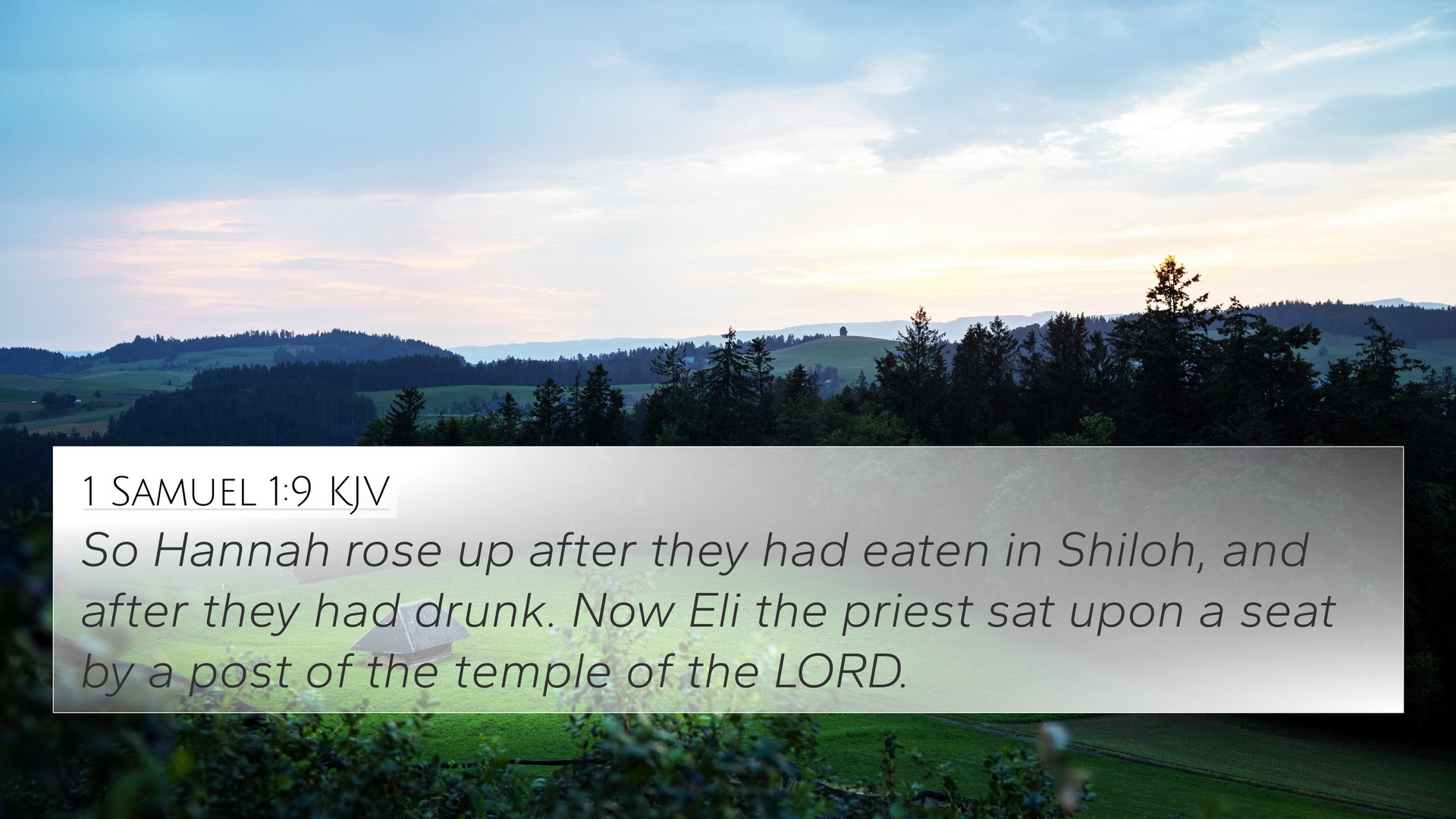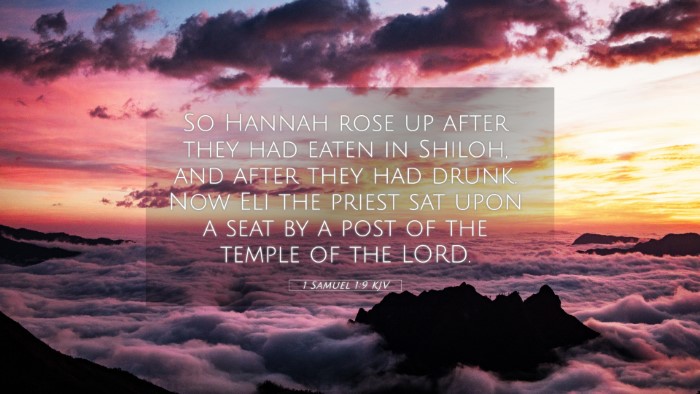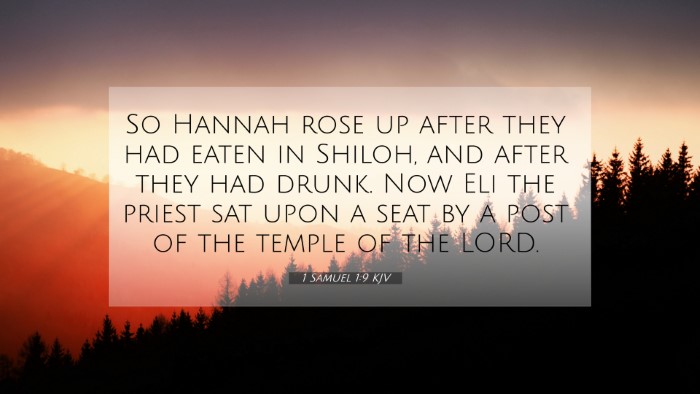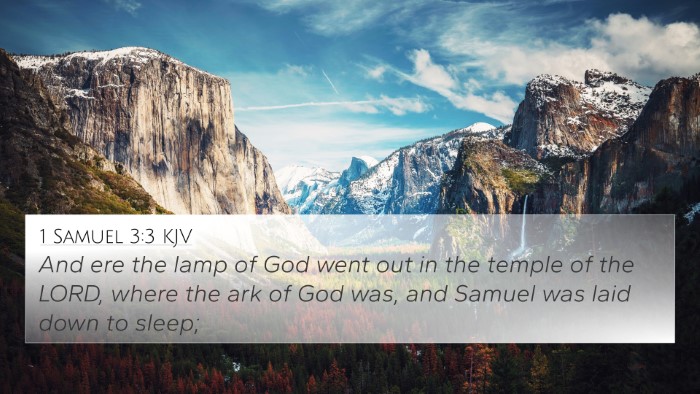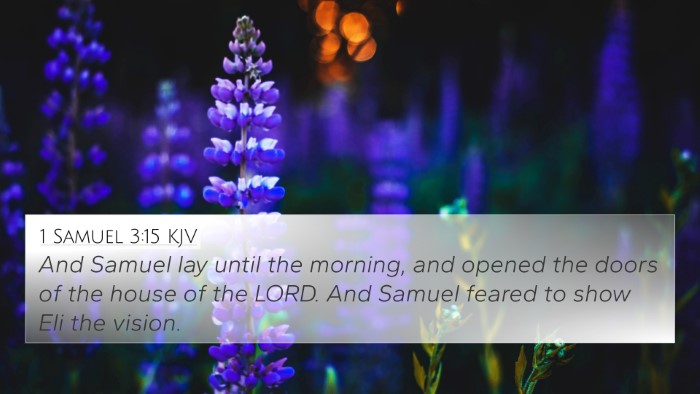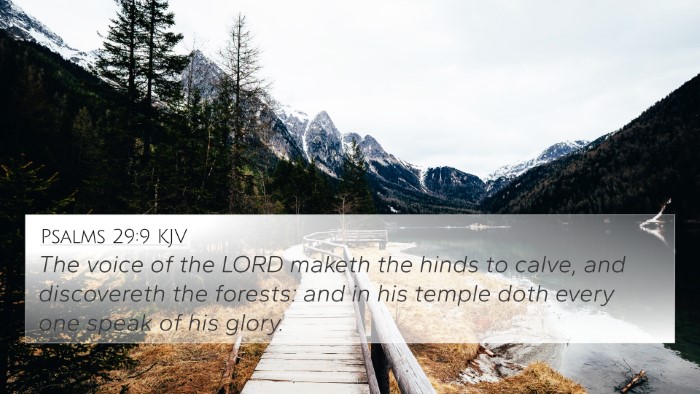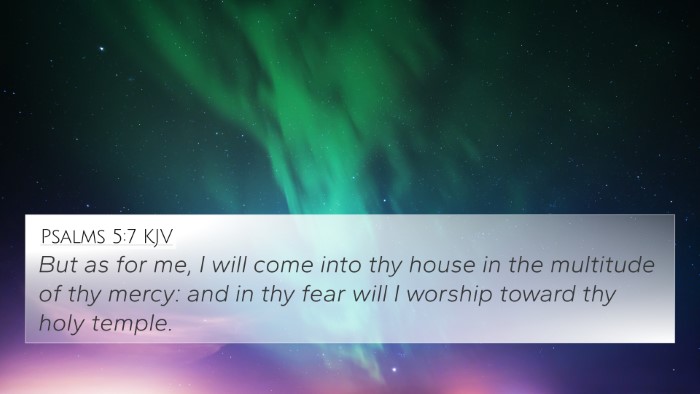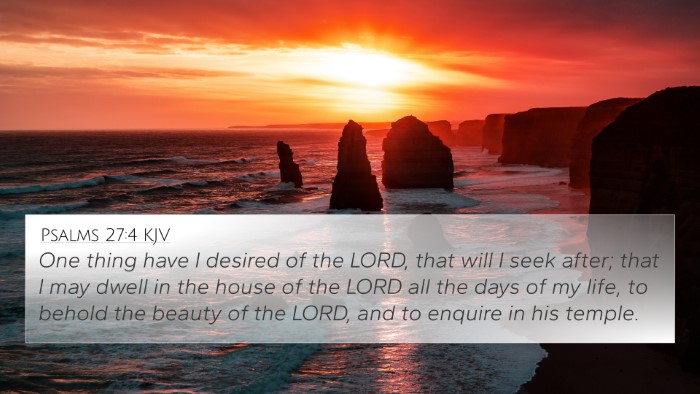Understanding 1 Samuel 1:9
Bible Verse: 1 Samuel 1:9 - "So Hannah rose up after they had eaten in Shiloh, and after they had drunk. Now Eli the priest sat upon a seat by a post of the temple of the Lord."
Contextual Background
This verse sets the stage for a pivotal moment in Hannah's life as well as in the history of Israel. It captures her emotional and spiritual struggle as she approaches God for relief from her sorrow.
Summarized Insights from Public Domain Commentaries
Matthew Henry's Commentary
Matthew Henry emphasizes Hannah's earnestness in her prayer, noting that her rise from the table symbolizes her transition from a state of despair to one of promise. He interprets the act of going to the temple as an important step in her spiritual journey, illustrating the significance of prayer and dependence on God in times of distress.
Albert Barnes' Notes
Albert Barnes highlights the setting of Shiloh, a place of worship, signifying that Hannah's actions are not only personal but collective, representing a broader theme of seeking God amidst communal worship. He describes Eli's presence as a spiritual authority, indicating the importance of leadership in guiding prayerful individuals.
Adam Clarke's Commentary
Adam Clarke notes that Hannah's actions display a deep faith. He points out that the act of going to the temple after having eaten reflects her determination to seek God, regardless of her previous circumstances. He emphasizes the importance of approaching God with a persistent heart, echoing the necessity of faith in prayer.
Bible Verse Cross-References
1 Samuel 1:9 is rich with thematic connections and inter-textual dialogue with other scriptures. Here are some related Bible verses:
- Psalm 34:18 - "The Lord is near to the brokenhearted and saves the crushed in spirit."
This verse highlights God's compassion and proximity to those in distress, aligning with Hannah's situation.
- 1 Peter 5:7 - "Casting all your anxieties on him, because he cares for you."
This echoes Hannah's need to relinquish her burdens to God through prayer.
- James 5:16 - "The prayer of a righteous person is powerful and effective."
This emphasizes the potency of sincere prayer as seen in Hannah's act of rising to pray.
- Luke 18:1 - "And he told them a parable to the effect that they ought always to pray and not lose heart."
This encourages relentless prayer, similar to Hannah's determination.
- Matthew 7:7 - "Ask, and it will be given to you; seek, and you will find; knock, and it will be opened to you."
This illustrates the idea of seeking God, paralleling Hannah's action in the temple.
- Isaiah 41:10 - "Fear not, for I am with you; be not dismayed, for I am your God."
This promises God's presence and support, reinforcing Hannah's need for divine intervention.
- Philippians 4:6-7 - "Do not be anxious about anything, but in every situation, by prayer and petition, with thanksgiving, present your requests to God."
This underscores the importance of prayer in addressing life's challenges, akin to Hannah's experience.
Thematic Connections
1 Samuel 1:9 emphasizes themes of prayer, faith, and divine intervention. Hannah’s actions embody the struggle of women in scripture, seeking fulfillment and relief from societal pressures and personal distress. Her story links to broader narratives of faith and redemption found throughout the Bible, enhancing our understanding of God's character and His dealings with humanity.
Tools for Bible Cross-Referencing
To delve deeper into understanding biblical themes and connections, consider utilizing:
- Bible concordance
- Bible cross-reference guides
- Cross-reference Bible studies
- Comprehensive Bible cross-reference materials
Conclusion
1 Samuel 1:9 serves as a powerful reminder of the importance of prayer and the deep faith required to approach God amidst life's challenges. Through the lens of cross-references and thematic analysis, we can appreciate how intertwined the narratives of the Bible truly are and how they collectively reveal the heart of God towards His people.
